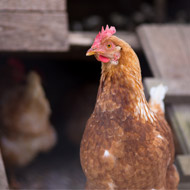Poultry Hub to combat increasing risk of zoonotic disease

The Hub recognises that animal, human and environmental health are interconnected.
A new initiative has been launched to help combat the ever-increasing risk of zoonotic disease.
Researchers say The One Health Poultry Hub has been formed in response to global concerns over the potential for animal pathogens to emerge and ‘spill over’ into humans.
Funded through the Global Challenges Research Fund, its focus on poultry is representative of the challenges that antimicrobial resistant (AMR) diseases and avian influenza represent and the impact they have on society.
Professor Munir Iqbal, head of the Avian Influenza Virus research group at The Pirbright Institute, is among the international experts that have formed the hub.
“I am excited to be part of the One Health Poultry Hub, which will create a network of collaborative research whose mission is aligned with that of The Pirbright Institute – to prevent and control diseases of livestock and those that spread from animals to humans,” he said.
Through adopting a ‘One Health’ approach, the Hub recognises that animal, human and environmental health are interconnected and that a collaborative approach to the research, policy and management of zoonoses is required.
One of the Hub’s aims will be to address the increasing demand for eggs and poultry meat in developing countries in a way that is safe and sustainable. Because this is most pressing in South and Southeast Asia, researchers will work in Bangladesh, India, Sri Lanka and Vietnam as part of a global network that involves 50 groups.
Professor Iqbal added: “The links between all the groups involved will mean researchers are able to tap into different research and collaborations that will advance our understanding and efforts to prevent and control avian influenza and antimicrobial resistant diseases now and in the future.”



 RCVS Knowledge has welcomed Professor Peter Cockcroft as editor-in-chief for Veterinary Evidence.
RCVS Knowledge has welcomed Professor Peter Cockcroft as editor-in-chief for Veterinary Evidence.